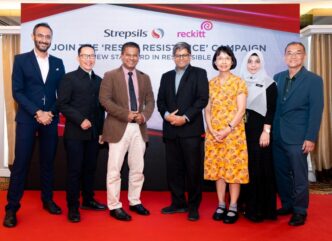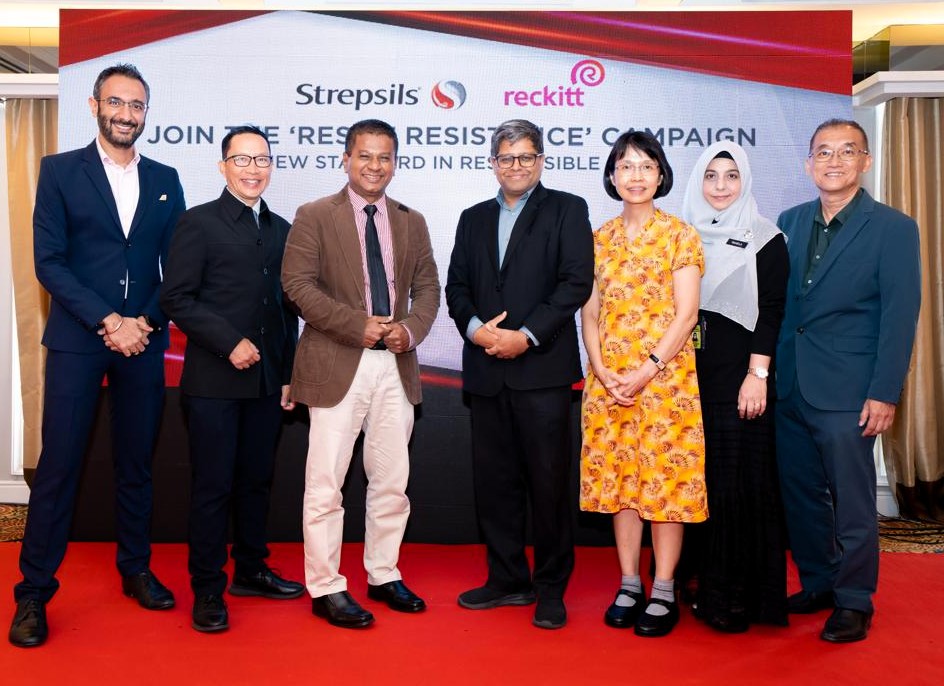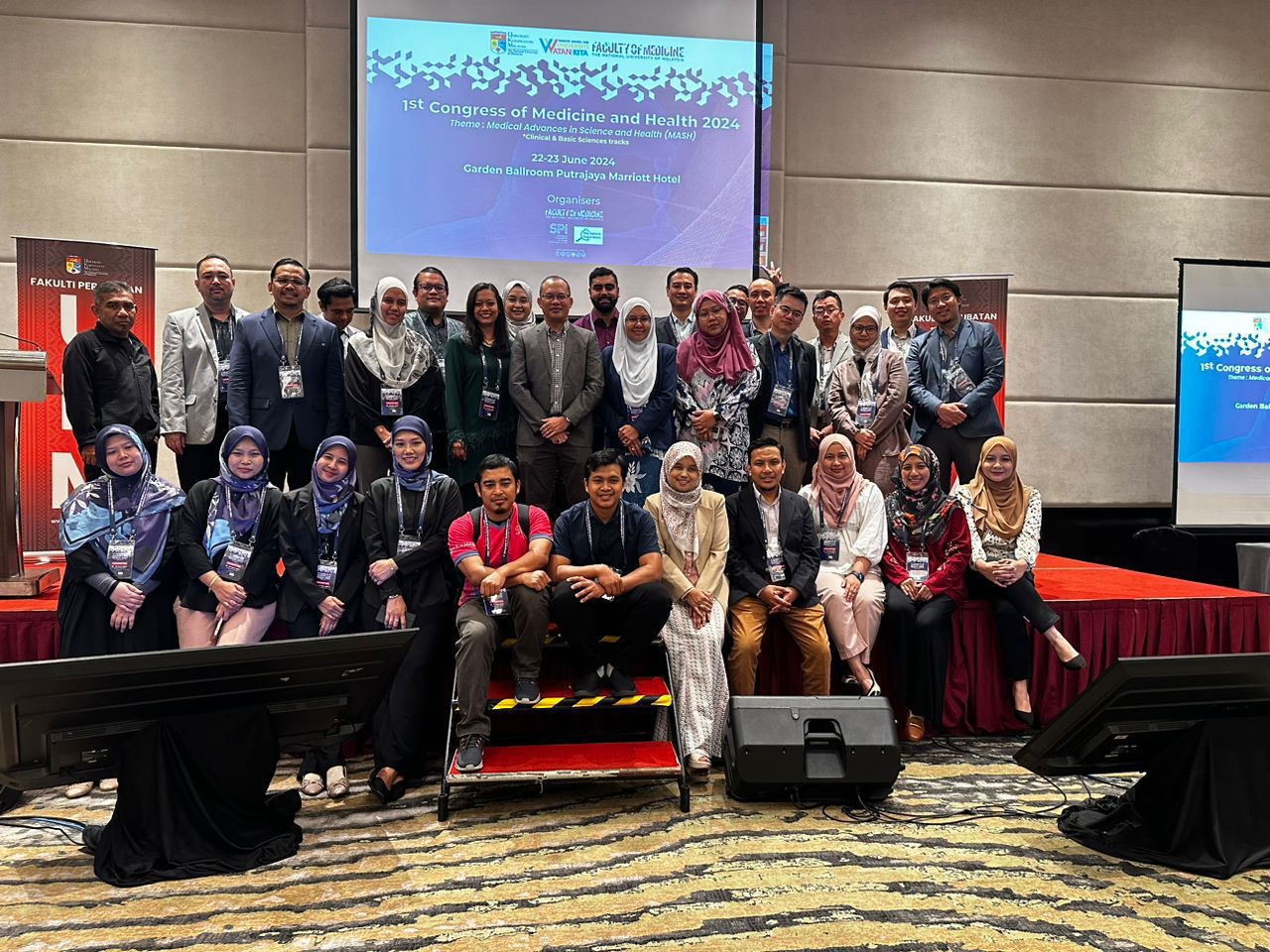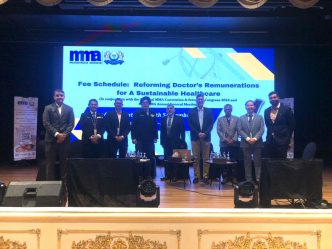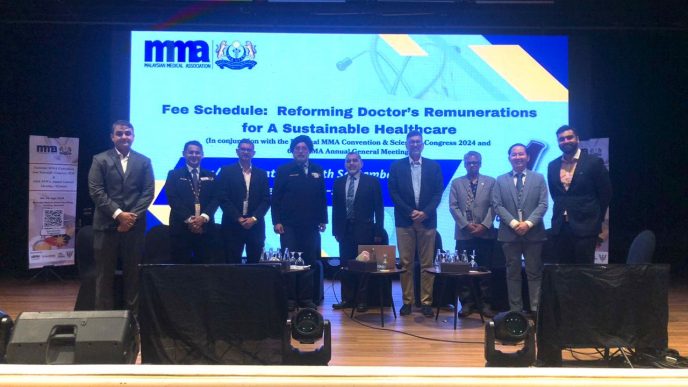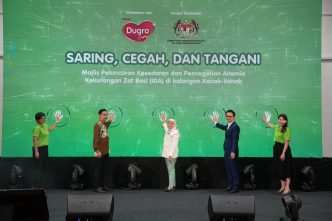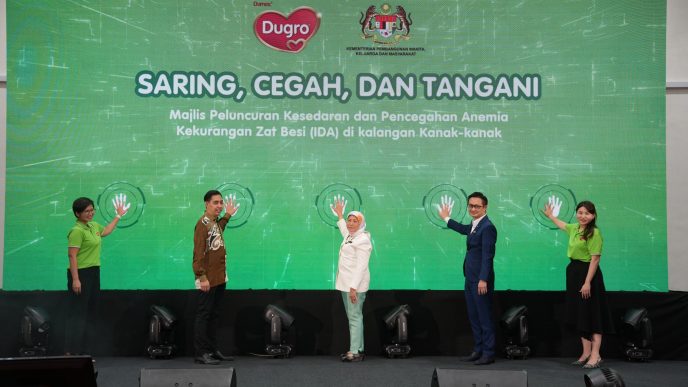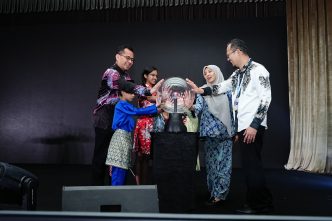Antibiotic misuse in Malaysia is on the rise, and it could cost lives. At a recent panel hosted by Strepsils, healthcare experts highlighted how inappropriate use, especially for viral sore throats, fuels resistance and why symptom-based treatments are the safer path forward.
WORDS LIM TECK CHOON
In a move to address the escalating issue of antibiotic misuse, Strepsils — the global leader in throat relief — hosted the Resist Resistance Panel on 23 July 2025 in Kuala Lumpur.
The panel gathered key healthcare professionals and Ministry of Health Malaysia representatives.
The discussion focused on the growing threat of antimicrobial resistance (AMR) in Malaysia.
A PANEL OF LUMINARIES
Among the panelists were:
- Dr Ho Bee Kiau, consultant family medicine specialist
- Dr Rahela Ambaras Khan, Head of the Pharmacotherapy Branch at Hospital Kuala Lumpur
- Professor Dr Baharudin Abdullah, senior consultant in otorhinolaryngology at Universiti Sains Malaysia
- Dr Mohazmi Mohamad of University Malaya’s Primary Care Medicine Department
- Dr Koh Kar Chai, President of the Manipal Alumni Association Malaysia
AN INSIGHTFUL DISCUSSION
Experts Warn of Widespread Antibiotic Misuse
- The experts shared deep concern over the widespread habit of taking antibiotics for conditions that don’t warrant them, particularly viral sore throats.
- There is clear clinical evidence that most sore throats are viral in origin and require no antibiotic intervention.
- However, many Malaysians still insist on receiving them, accelerating the rise of resistant bacteria.
- According to the panel, this trend could lead to a future where routine infections become life-threatening once again.
Dr Rahela Ambaras Khan emphasized the real-world implications of overprescription. “At Hospital Kuala Lumpur, we’ve seen how misinformation around antibiotics leads to ineffective treatment and drug resistance. Educating patients is critical to reversing this trend,” she said.
Professor Dr Baharudin stressed the importance of aligning clinical practice with medical evidence. “Too often, antibiotics are prescribed for viral infections where they offer no benefit. Bridging that knowledge-practice gap is vital,” he explained.
To counter this, the panel advocated for a shift toward evidence-based throat care that addresses symptoms such as pain and inflammation without resorting to antibiotics.
Over 90% of Sore Throat Antibiotic Prescriptions Are Unnecessary
A recent study, shared during the discussion, revealed that:
- Only 2.8% of sore throat cases in public primary care settings are caused by Group A Streptococcus (GAS), the primary bacterial culprit that justifies the use of antibiotics.
- However, 22.3% of sore throat patients still receive antibiotics.
- Over 90% of those prescriptions are deemed medically unnecessary.
To help address this, the session highlighted the launch of the Malaysian Multidisciplinary Sore Throat Consensus.
- This is a newly established set of guidelines designed to support clinicians in making more accurate diagnoses and prescribing decisions.
- The guidelines emphasize patient education and the responsible use of non-antibiotic treatments.
A Call for More Awareness
Dr Mohazmi Mohamad addressed the need for both public and professional awareness.
“Patients may be confused when told they don’t need antibiotics. That’s where clear communication and education make a difference—they’re more likely to accept alternative care when they understand the rationale,” he said.
Dr Koh Kar Chai echoed the call to move away from the entrenched “pill for every ill” mindset. “Changing public expectations, along with equipping doctors with evidence-based tools, can significantly curb antibiotic overuse.”
The Sore Throat Consensus aims to support such a shift. It offers healthcare providers detailed guidance on when antibiotics are truly necessary and encourages diagnosis-driven, symptom-focused management—especially for viral sore throats.
A Shared Responsibility
Dr Ho Bee Kiau noted that the Ministry of Health is also actively working on national strategies to combat antibiotic misuse, including stronger policies, updated clinical guidelines, and expansive public education campaigns.
“We all share responsibility in this fight against AMR. It’s a health priority that demands a unified effort,” she said.
As Malaysia steps up its fight against AMR, Strepsils remains committed to supporting better health outcomes through patient education and evidence-led treatment options. The Resist Resistance initiative and the launch of the new clinical guidelines represent a joint effort to curb unnecessary antibiotic use and promote responsible care.
| This article is part of our series on health-related campaigns and milestone events of note in Malaysia. |

